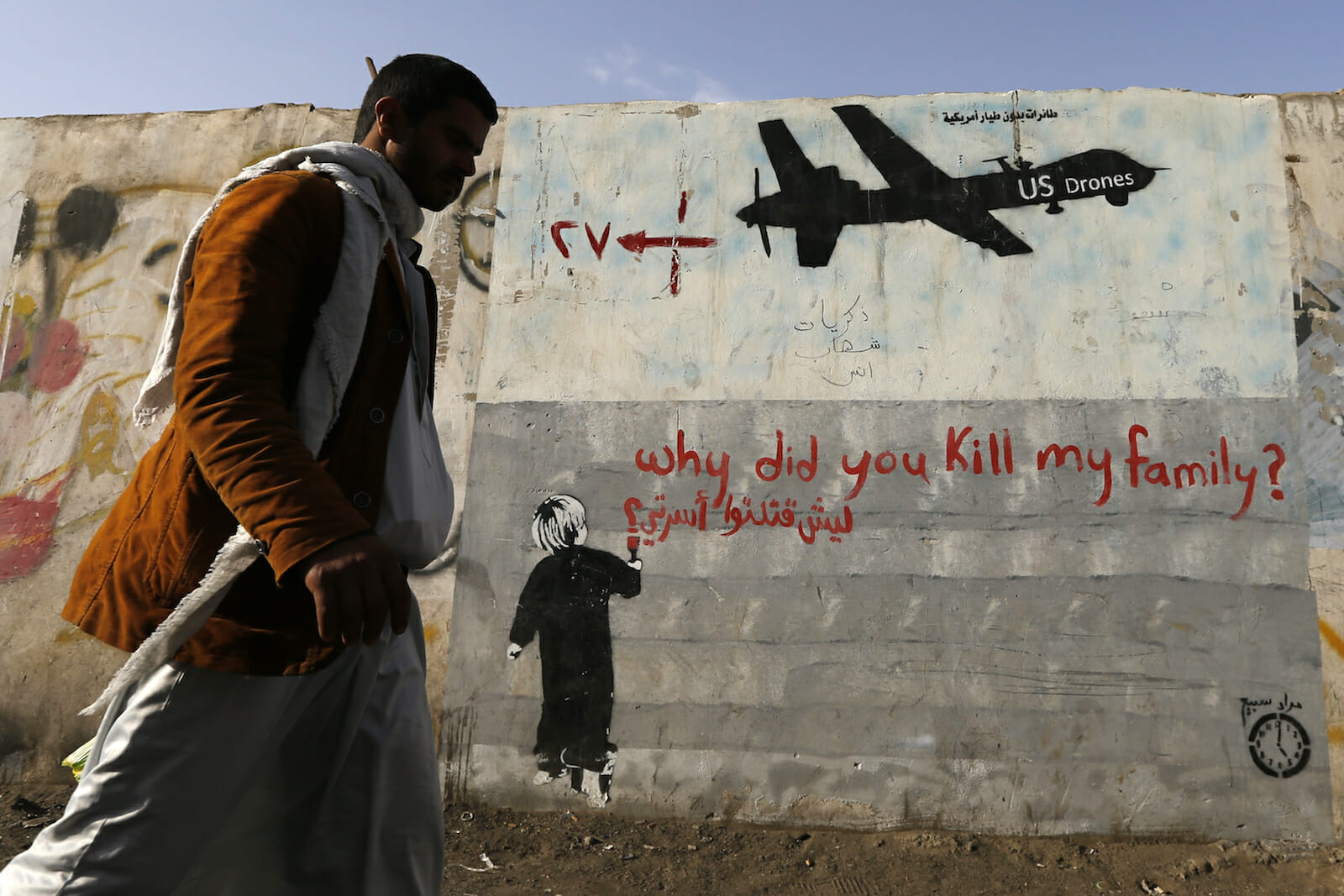
Disengage, Don’t Intervene in Yemen’s Civil War
It’s a familiar story: a far-off country caught in a civil war, and an American imperative to intervene. The case of Yemen now looms. Rather than get bogged down in another country’s civil war, the United States should disengage from Yemen and instead focus its efforts on counterterrorism, maintaining safe shipping lanes, and humanitarian relief.
Since 2014, the Yemeni government has been at civil war with the Houthi rebel group. The United States wants to ensure regional stability and contributes financial backing, military assistance, and arms sales to a pro-government coalition led by Saudi Arabia. Yet the United States can achieve all of its key objectives in Yemen by simply steering clear.
First and foremost, the main US security objective in the Middle East is counterterrorism. The United States needs consent from Yemen’s central government in order to engage in counterterrorism raids against al-Qaeda in the Arabian Peninsula (AQAP) strongholds. President Hadi has given his consent, openly supporting American counterterrorism efforts in the region. The U.S. has all the authority it needs to pursue AQAP along the southern coast of Yemen.
The United States’ second objective is to protect international shipping lanes in the Bab-el-Mandeb strait to defend US oil interests in the Gulf of Aden. Currently, the USS Cole and its support boats are stationed off the Yemeni coast. If necessary, the United States can deploy more of the 6th Fleet to support the Cole and American economic interests. Despite clashes between Saudi warships and Houthi rebels, the Cole has proven sufficient at deterring conflict, protecting trade routes and securing the roughly five million barrels of oil that pass through the strait each day.
The final US objective in Yemen is to alleviate the effects of the humanitarian crisis caused by the civil war. Saudi Arabia is under fire for indiscriminately bombing Houthi targets and killing innocent civilians. The UN puts the current death toll at over 10,000. Millions more need urgent assistance. The United States is indirectly complicit in these deaths, and US support for the Saudi coalition only makes heroes of the Houthi rebels. By pulling out of Yemen, the United States can focus on alleviating the humanitarian crisis instead of contributing to it.
Critics say that the coalition will fail without US support. Yet years of American-led training means that Saudi forces are more than capable of continuing the military campaign, and the Gulf States have more than enough funding to carry on.
Critics say that US efforts to eliminate AQAP will be unsuccessful while the civil war continues. While the war makes the task more challenging, disengagement will enable the United States to focus time and resources on counterterrorism.
Finally, critics claim a pullout will fuel anti-American sentiment. To Yemeni citizens, the US already is meddling in Yemeni affairs, contributing to mass starvation and human suffering. By pulling out of Yemen, the United States can relieve future suffering and build a partnership based on mutual respect.
By disengaging, the United States can focus on its main objective of counterterrorism. It can contribute to lasting regional stability by keeping the shipping lanes open and assisting innocent civilians harmed in the conflict. By disengaging, the United States can do a better job of protecting its own interests — and help the suffering people of Yemen rebuild.
